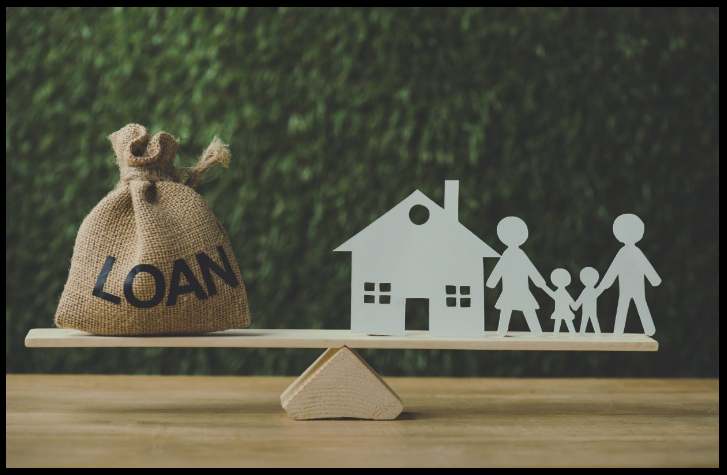Why Is My Payoff Amount More Than What I Owe?
Why Is My Payoff Amount More Than What I Owe: If you’ve got a loan like a mortgage or a car loan, you power know that your settlement amount is more significant than what you are owed.
This could be complicated And confusing. However, there are many causes this may occur. In this paper, we’ll examine some of the most typical reasons that the amount you pay off could surpass what you have to pay.

1. Interest Accrual
One of the main causes why your repayment charge could be more significant than the amount you owe could be due to interest accrual. When you get a loan, you sign an agreement to repay the main amount plus goods over a specific time.
The interest rate is estimated according to the large loan amount and accrues over time. So, when you pay off The loan In advance, you have To pay some interest that hasn’t yet been paid. For example, let’s say you have A loan for a car for $10,000 with An annual appeal of five percent.
If you reimburse The loan one month earlier, you will still be owed one month’s interest, which Is $41.67. That means your final payment will be $10,041.67, though the loan credit is $10,000.
2. Fees and Penalties
Another reason your payment amount could be greater than you owe in penalties and fees. Based on your loan needs, there may be costs or penalties for refunding the loan in advance.
For instance, certain mortgages come with prepayment fines which could be significant. In addition, certain car loans might include early termination costs or other penalties if you pay off the loan before the back of the loan term.
3. Negative Equity
Negative equity is another reason the amount you pay off could be greater Than The amount you Are owed.
The worth of your vehicle is less Than what you have To pay on The car loan.
It can happen when you borrowed money to buy A car with low down costs or if the car has declined more quickly Than The amount you paid off the loan.
For instance, assume you have A loan on your car with A credit of $15,000, but The worth of your car is $12,000. In This instance, you’re dealing with negative equity of $3000.
If you decide to sell your car or pay off The loan earlier, You will have To pay The entire amount To pay off That, including your negative equity.
4. Late Payments
The late payment can also lead to a greater amount of payoff. You could be charged penalties or late fees if you’ve missed or made late payments on your loan. These fees could add up in time and add to the amount you pay off.
5. Accrued Interest on Late Payments
If you’ve miss A payment or Have made A late payment on your loan, you could be responsible for accrue interest on those late or skipp payments.
That means you will be charge interest for delay or miss payments and the additional interest you pay on The remaining loan balance. This will substantially increase the amount you pay off.
How to Determine Your Payoff Amount
If you’re looking To figure out The amount you will pay off, You can talk to your lender or look up The most recent statement of your loan.
The amount you pay off will be The remaining balance on your loan, accru interest, And Any penalties or fees That could be impos.
Remember That your payment amount could fluctuate over time, particularly if you’ve not paid on time or miss repayments on your loans.
Conclusion
The amount you pay off could exce what you must pay for many reasons. The accrual of interest, fees, and penalties, as well as late payments, negative equity, And the accru interest on late payments, could all result in An increase amount to pay off.
If you want to determine the exact amount to pay off, you should get your lender or review the most recent information on your loan.
Knowing your payment amount will assist you in making informe choices regarding repaying your loan early or refinancing the loan.
FAQs
Q.1 What is a payoff amount?
ANS. Payoff refers To The total amount you have to pay to meet the conditions of your loan And fully eliminate your obligation.
Q.2 Is my payoff amount the same as my current balance?
ANS. Your payoff amount is different from the current balance. The balance you have at present may not reflect the amount you will have to pay to cover the loan.
Your total amount for payoff will also include the repayment of any interest you are owe until the day you plan to repay your loan. The amount you pay off could contain additional fees you’ve paid but haven’t yet paid.
Q.3 Why is my payoff amount more than what I owe?
ANS. The amount you pay off could exce the amount you owe for various reasons, such As interest accrual, penalties and fees, bad equity, insufficient payment, and accrue interest for late payments.
Q.4 How can I determine my payoff amount?
ANS. Contact your lender, or go through the most recent statement of your loan to determine your payment amount.
The amount of your payoff will be the remaining balance on your loan, accrue interest, And any penalties or fees That could be impose.
Q.5 Can I negotiate my payoff amount?
ANS. Sometimes, you can negotiate your repayment price with the lender. However, this would depend on The conditions of your loan and your lender’s policy.
Q.6 What is a payoff statement?
ANS. A loan provider makes a payoff statement that lists an amount to pay off if you prepay a mortgage or any other loan. A payoff letter or mortgage payoff statement usually provides the balance you need to pay to finish your loan.
Q.7 How can I get a payoff statement?
ANS. Contact your loan servicer or lender for a payoff statement and ask for one. They will give you An exact statement of The amount need to pay off the loan.
Q.8 Can I pay off my loan early?
ANS. Yes, you can pay off your loan In advance. However, you could be liable for penalties for early payment or other charges. It Is Important To review The conditions of your loan before you pay It off In A hurry.
Q.9 What is negative equity?
ANS. Negative equity happens when The worth of your possession, such As A vehicle or house, Is less Than The amount you have to pay on a loan.
This could be the case if you have finance An asset using a small down payment or when the asset’s value has decrease more rapidly than you paid off the loan.
Q.10 How can I avoid having a payoff amount that is more than what I owe?
ANS. To avoid paying off An amount greater Than The amount you owe, you should pay your loan punctually and incompletely.
It is also possible to make your loan payments early; however, take note of penalties for prepayment or charges that could be impos.
You can also try to bargain with your lender to reduce any penalties or fees contributing to the higher amount you pay off.
